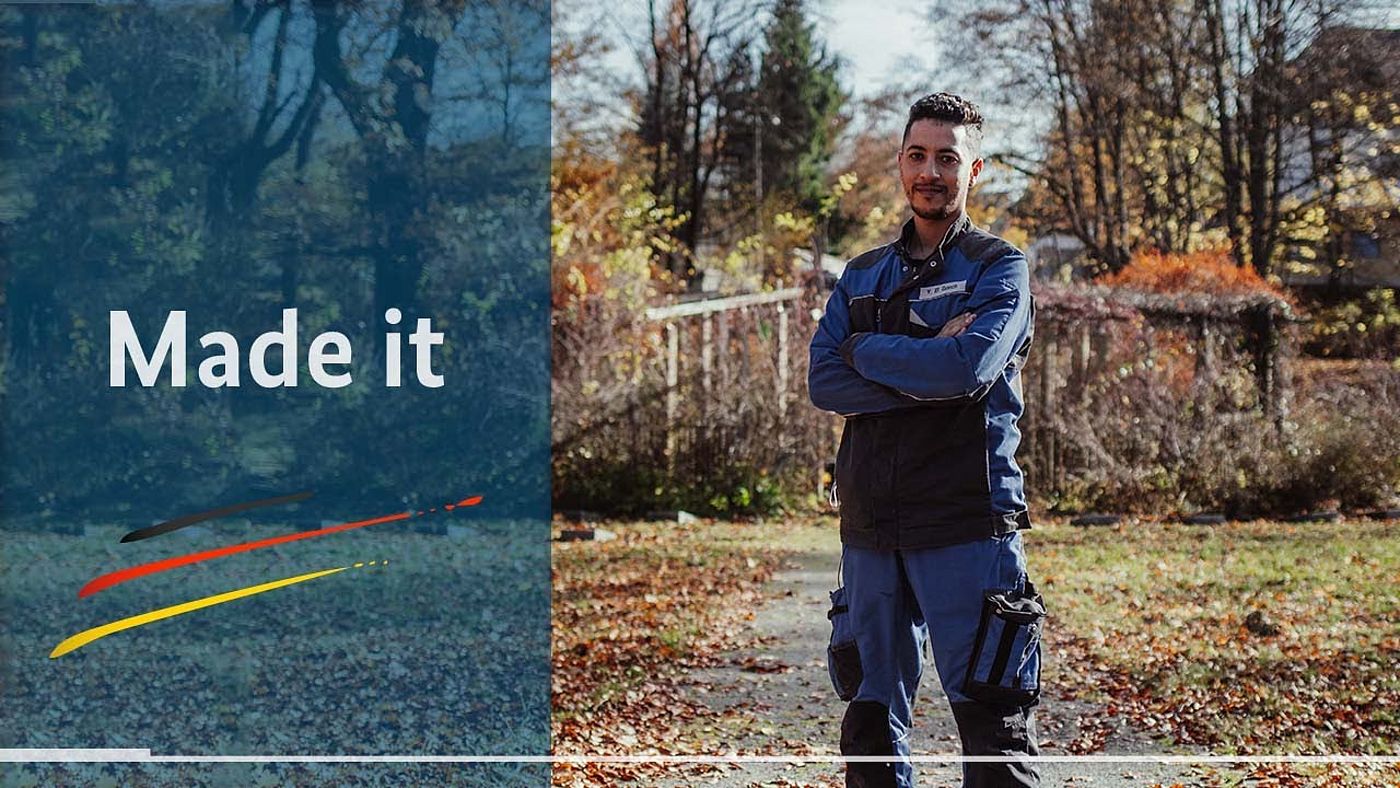One way of training for your future occupation in Germany is by pursuing a dual vocational training programme. Such programmes offer plenty of opportunities for on-the-job training and work experience. Programmes usually last between two and three and a half years and consist of theoretical as well as practical elements. You will spend one or two days a week, or several weeks at once, at vocational school (Berufsschule) where you will acquire the theoretical knowledge needed in your future occupation. The rest of the time will be spent at a company, where you get to apply your newly acquired knowledge in practice, for example by learning to operate machinery. You will get to know what your company does, learn how it operates, and find out if you can see yourself working there after completing your vocational training.
The combination of theory and practice gives you a head start for your job: by the time you have completed your vocational training, you will not only have the required technical knowledge, but you will also have hands-on experience in your job. There are 327 officially recognised vocational training programmes in Germany, so there is a good chance that one of them might suit your interests and talents. You can find out which one that might be by visiting one of the job and vocational training fairs in many German cities at different times during the year. Information on when and where the fairs take place can be found on the Planet Beruf website.
Employment prospects for students who have completed a dual vocational training programme are excellent. This is one of the reasons why this kind of vocational training is very popular amongst young Germans: around two thirds of all students leaving school go on to start vocational. Here you can find further information on the requirements for starting vocational training in Germany.





